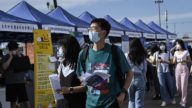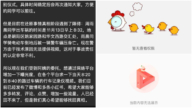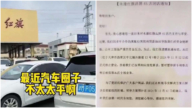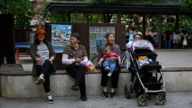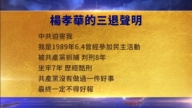【新唐人2011年11月4日訊】最近,在中共國務院限購、限價、限貸等強硬政策下,降價潮逐漸席捲了整個中國樓市。不過,接踵而來的是土地市場的急速降溫、地方政府土地財源的驟減。這讓長期以土地出讓金為財政收入來源的地方政府一下子變成窘迫不堪,它們將如何應對這一難題呢?我們聽聼專家的分析。
中國廣東城市珠海,剛剛在11月1號推出「雙限」政策,儘管讓眾多開發商為之心寒,然而更深層的難題,可能是樓市低迷所帶來的政府土地財政問題。
《第一財經日報》披露,從公開資料顯示,下半年以來,珠海土地市場不斷出現土地流拍現象。
《南方都市報》則從珠海市財政局了解到,珠海前三季度土地出讓金與預期相比差距很大,年初預計土地出讓收入可達88億元,按目前的情況,市財政將調整預算到50多億元,減少了30多億。
去年前10月,珠海市土地使用權出讓金收入203.9億元,約佔當地GDP的24%,同比增長14倍。《第一財經日報》分析,按照今年土地收入增幅程度來看,到今年10月市本級土地使用權出讓金收入能到100億元都不容易。
一直以來,中國各省和各城市政府缺乏其他穩定的財政收入來源,嚴重依賴出讓土地收入,經常將農用地通過拍賣形式出讓給房地產開發商。
《路透社》援引了上海一家民間投資顧問公司莫尼塔(CEBM)的分析師喬永遠的看法,他認為:「隨著土地出讓收入明顯減少,中國多數城市的財政收入基數可能逐漸縮小。」
那麼被隔阻了土地財源的地方政府新的可持續收入來源在哪裏呢?
紐約市立大學經濟學教授陳志飛認為,地方政府會採取徵收稅金的辦法來彌補部分財政收入。
紐約市立大學經濟學教授陳志飛:「將來的中國整個的運營環境、經濟領域,它的稅收情況會有很大的改變。而且地方的稅收會有大幅度的增加。這一塊,我估計就是地方政府會採取舉措來改變它,以土地轉讓金減少而造成的財政損失,中央政府與地方政府最後也會達成一個默契,我把你的土地轉讓金、房產這塊損失,我會用睜一隻眼,閉一隻眼的辦法來讓你亂徵各種稅金來彌補,我想這個是一個可能發生的情況。」
最近,浙江湖州發生萬人抗稅事件引發各界關注。陳志飛認為,這起事件已經體現出大陸地方財政在地皮轉讓這方面收入減少,轉而徵收以地方命名的各種附加稅來彌補財政來源。
此外,目前已經在上海、深圳試行的「地產稅」也會讓地方政府增加財政收入。不過,陳志飛認為,增收稅金並不能完全彌補地方財政。
紐約市立大學經濟學教授 陳志飛:「地方財政肯定會緊縮,這是中央與地方博弈的主要部分。因為它們(中共中央)發現,這個實際是地方做大,還有經濟泡沫形成的主要來源,這樣下去的話,矛盾會加劇,而且這個經濟泡沫會把邪黨的體制崩掉。這也是所謂經濟過熱帶來的問題,那麼經濟過熱實際上是虛假的,虛擬的,泡沫型的,所以說,外界已經預計到,今年的經濟發展可能還會增長達到9.5%左右,但是,在兩三年內它會降到6%。」
對中共出臺的樓市調控政策,美國《華爾街日報》3號的文章援引分析師和開發商的分析說,由於中共政府實施抗通脹政策導致銀行信貸收緊,經濟整體放緩,投資者在房價多年穩步上漲後變得謹慎起來,中國樓市前景正在變壞。
分析認為,珠海「限購令」凸顯樓市政治壓力,隨著明年中共18大召開,樓市受到了更多的審視,因為如果到那時候房價仍高不可攀,似乎就說明共產黨沒有能力保障廣大民眾的生活。
新唐人記者梁欣、李靜、張健採訪報導。
CCP Local Authorities Face Plight of Land Revenue
Recently, State Council of Chinese Communist Party
(CCP) authorities released tough policies such as limiting home purchase,
limiting prices and limiting loans etc..
a wave of price cuts swept through China』s property market.
However, land market cooling-down ensued as well as
slump land revenues for the CCP local authorities, which
has long-term relied on the income of land sales,
suddenly trapped in a sorry plight
How will CCP local authorities cope with such a dilemma?
Let』s see experts』 analysis.
An official “double-limiting" policy on property market was
just launched on November 1st in Zhuhai, Guangdong,
bringing chilling to many property developers.
However, a more deep-seated tough question might be
focused on the land financial problem, triggered by the property market downturn.
First Financial Daily reveals that publicly available data show
since the second half of this year, the land market in Zhuhai kept failing land auctions.
Southern Metropolis Daily reports quoted official data that
revenues from land sales in the first three quarters differed greatly from the expectation.
In early 2011, land sales revenues were expected to reach
RMB 8.8 billion. Based on the present situation,
the Municipal Bureau of Finance will have to lower the budget
by RMB 3 billion, to RMB 5 billion.
The first ten months of 2010, revenues from land sales
in Zhuhai were RMB 20.39 billion, about 24% of local GDP.
A year-on-year increase of 14 times.
First Financial Dail analyzed that,
according to this year』s growing rate of land revenue,
it is hard to reach RMB10 billion by this October.
All along, China』s provincial and municipal authorities lack
other stable sources of fiscal revenues.
They have been heavily relying on revenues of land sales.
Agricultural lands are often sold to real estate developers
through auctions.
Reuters quoted Qiao Yongyuan, an economist
at the CEBM Group in Shanghai, saying,
" with obvious declining of land revenues,
the total fiscal revenues of most cities in China might be gradually diminished.”
Where are new sustainable sources of fiscal incomes for CCP』s
local authorities?
Chen Zhifei, a professor of economics at the City University
of New York, believed that local authorities will levy taxes to offset part of its fiscal revenues.
Chen Zhifei: “In the future, the entire operating environment,
economy and tax collection in China, may vary greatly.
Local authorities may substantially increase taxes.
I think that they will take measures to offset the losses
caused by diminished land revenues,
and will finally reach a tacit agreement with
CCP Central authorities.
The latter will turn a blind eye to local authorities』 levying
various taxes. I think this is likely to happen. “
Recently, a mass tax-resistance incident broke out
in Huzhou, Zhejiang, drawing public attentions.
Chen Zhifei commented that the incident unveiled that
CCP local authorities』 land revenues have diminished.
Thus they levied other various local additional taxes
to make up their financial sources.
What』s more, the property tax, currently piloted in Shanghai
and Shenzhen, will increase local authorities』 fiscal revenues.
However, Chen Zhifei believed that tax increment will not
fully compensate local fiscal finance.
Chen Zhifei: “The local fiscal finance will certainly be tight.
This is the major part of game played between CCP』s
central authorities and local authorities.
CCP central authorities found that land revenues not only
helped local authorities to be stronger in terms of finance, but also the major source of economic bubble.
If it goes on, conflicts will increase, and the economic bubble
will make CCP』s whole system collapse.
That is the so-called problems caused by
overheated economy.
In reality, the overheated economy is fabricated
and fictitious, a bubble.
So it has been estimated that China』s economic
grow rate will be 9.5% this year.
But within two or three years,
it will be dropped down to 6%. “
After Zhuhai issued an official home purchase limited policy,
the Wall Street Journal』s article dated November 3,
quoted analysts and developers as saying that
CCP』s anti-inflationary policies led to tight bank credit, the overall economy has slowed down.
Investors have become cautious after years of steady
upward housing prices.
China’s property market outlook is worsening.
Analysts say that Zhuhai』s official limiting order exposed
CCP put political pressure on the property market.
With the upcoming 18th CCP Congress in 2012,
more attention are focused on China』s property market.
If housing prices are still sky high in next year, it seems
showing that CCP has no capability to assure civilians』 lives.
NTD reporters Liang Xin, Li Jing and Zhang Jian


